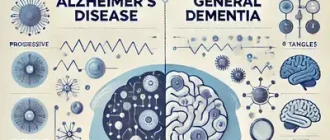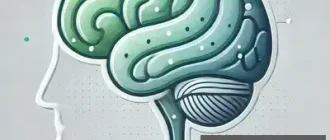With more people seeking alternatives to pharmaceutical cognitive enhancers, herbs for brain health have gained traction. These natural options may improve memory, focus, mental energy, and even support long-term brain health. According to the Global Herbal Supplements Market Report (2024), cognitive-supporting herbs make up over 17% of the global market.
Memory Boosting Effectiveness of Herbal Supplements
This chart displays the self-reported effectiveness of various herbal supplements for memory enhancement based on user surveys. Ginkgo Biloba, Bacopa Monnieri, and Lion’s Mane top the list, suggesting greater perceived benefits among users.
How Do Brain-Boosting Herbs Work?
Most herbs that benefit the brain function by enhancing cerebral blood flow, reducing inflammation, and supporting neurotransmitter activity. Others offer adaptogenic properties that help the brain better cope with stress — which, by the way, is a silent killer of memory.

Top Herbs That Support Brain Health
1. Ginkgo Biloba
How it works: Increases blood circulation to the brain and acts as an antioxidant.
This means it helps deliver more oxygen and nutrients to brain cells — think of it like opening extra lanes on a mental highway. Antioxidants neutralize free radicals (unstable molecules that can damage cells), which are kind of like rust for your brain. By reducing this internal “rusting,” Ginkgo may slow cognitive decline and preserve memory clarity.
Benefits:
- Enhances memory and cognitive speed
- Used in dementia and Alzheimer’s management
Backed by science: A 2022 meta-analysis in Psychopharmacology found that Ginkgo Biloba improved memory performance in adults over 60.
Form and dosage: 120-240 mg daily, typically in capsule or liquid extract.
2. Bacopa Monnieri (Water Hyssop)
How it works: Boosts brain signaling and protects brain cells.
Bacopa enhances the communication between neurons by increasing the availability of neurotransmitters — chemical messengers like serotonin and acetylcholine. Imagine neurons as office workers and Bacopa as their supercharged Wi-Fi connection: messages get across faster and more reliably. It also has neuroprotective effects, shielding brain cells from stress and inflammation.
Benefits:
- Improves memory retention
- Reduces anxiety
Clinical insight: A double-blind study in Australia (2021) showed improved memory recall after 12 weeks of supplementation.
Form and dosage: Standardized to 20% bacosides; 300 mg daily.
3. Lion’s Mane Mushroom (Hericium erinaceus)
How it works: Promotes nerve growth factor (NGF) in the brain.
NGF is a protein that supports the growth and maintenance of neurons. Think of it like brain fertilizer — helping sprout new neural connections and keeping old ones healthy. This can be particularly helpful for older adults or anyone recovering from cognitive decline or nerve injury.
Benefits:
- Supports neurogenesis
- May reduce mild cognitive impairment
Interesting fact: In a U.S. case, a 62-year-old man from Oregon experienced improved short-term memory after 4 months on Lion’s Mane capsules.
Form and dosage: Powder, capsules, or tincture; 500–1000 mg, 1–3 times daily.
4. Rhodiola Rosea
How it works: Acts as an adaptogen, reducing stress-induced mental fatigue.
Adaptogens help the body resist physical, chemical, and biological stress. Rhodiola works like a brain thermostat, helping stabilize cortisol levels (your body’s main stress hormone). When cortisol is chronically high, it can impair focus and memory. Rhodiola smooths that response so your brain doesn’t short-circuit under pressure.
Benefits:
- Enhances alertness and stamina
- Protects brain from stress hormones like cortisol
Scientific support: Shown in a 2023 review in Nutrients to improve concentration under stress.
Form and dosage: 200–600 mg/day, typically taken in the morning.
5. Gotu Kola (Centella asiatica)
How it works: Supports brain cell regeneration and circulation.
Gotu Kola enhances microcirculation — the flow of blood through the tiniest vessels — which means more oxygen and nutrients reach brain tissue. It also stimulates dendrite and axon growth (the branches of nerve cells), helping neurons form new connections. Imagine turning on a network of garden sprinklers across the brain — more hydration, more growth.
Benefits:
- Enhances learning and memory
- Used traditionally in Ayurvedic medicine for brain rejuvenation
Modern study: UCLA’s 2022 research showed that Gotu Kola extract improved memory tasks in elderly patients with mild cognitive decline.
Form and dosage: 500–1000 mg/day; available in capsules, teas, or tinctures.

Average Time to Notice Memory Benefits from Popular Brain Herbs (in Weeks)
| Herb | Avg. Time (Weeks) |
|---|---|
| Bacopa Monnieri | 6 weeks |
| Lion’s Mane | 4 weeks |
| Ginkgo Biloba | 8 weeks |
| Rhodiola Rosea | 3 weeks |
| Gotu Kola | 5 weeks |
| Panax Ginseng | 7 weeks |
| Ashwagandha | 4 weeks |
| Sage | 2 weeks |
| Rosemary | 2 weeks |
| Peppermint | 1 week |
This chart presents the average time it takes for users to notice memory improvements from popular brain herbs. While some like Peppermint show quicker effects, others such as Ginkgo Biloba and Bacopa Monnieri
Diagnostic Insights: Are You Lacking Cognitive Vitality?
Before jumping into herbal supplements, it’s smart to get an accurate read on your cognitive function. Here’s how:
| Diagnostic Tool | Method | Accuracy (1–10) | Avg. Cost (USD) |
|---|---|---|---|
| Montreal Cognitive Assessment (MoCA) | 30-question test | 9 | $80–150 |
| EEG Brain Mapping | Electrical activity imaging | 8 | $300–600 |
| Neuropsychological Testing | Battery of cognitive exams | 10 | $1000+ |
| Functional MRI (fMRI) | Brain activity imaging | 9 | $2000–$4000 |
What These Tests Actually Mean
- Montreal Cognitive Assessment (MoCA): A short written and oral screening test that evaluates memory, attention, concentration, language, and orientation. Patients are asked to name animals, recall word lists, draw a clock, or repeat phrases. It’s simple, non-invasive, and takes about 10–15 minutes.
- EEG Brain Mapping (Electroencephalography): This test records the brain’s electrical signals using small electrodes placed on the scalp. It’s completely painless and doesn’t involve any radiation. Patients just sit quietly — sometimes with eyes closed or while performing simple mental tasks. The result is a colorful map of brainwave activity, useful for spotting stress, anxiety patterns, and attention issues.
- Neuropsychological Testing: A comprehensive set of standardized tasks designed to measure memory, problem-solving, reasoning, and even emotional function. It can take several hours and involves puzzles, logic games, memory recall, and language exercises — all done in a quiet setting with a trained specialist. It’s considered the gold standard for cognitive diagnostics.
- Functional MRI (fMRI): This test measures brain activity by detecting changes in blood flow. While lying in a scanner, patients might be shown images or asked questions to activate specific parts of the brain. It’s non-invasive but can be noisy, and people with claustrophobia may feel uncomfortable. It’s widely used in research and advanced clinical diagnostics for brain injury, memory disorders, and more.
These tests help personalize your approach — especially if you’re using herbs to complement a therapy plan.
Safety, Interactions, and What to Avoid
Even though herbs are natural, they’re not always risk-free. Here’s what to look out for:
- Ginkgo Biloba can interact with blood thinners (like warfarin, aspirin, or clopidogrel), increasing the risk of bleeding. Symptoms may include easy bruising, nosebleeds, or prolonged bleeding from minor cuts.
- Bacopa Monnieri may cause digestive discomfort, especially when taken on an empty stomach. This includes symptoms like nausea, bloating, loose stools, or a gassy feeling — similar to what one might experience after eating rich or unfamiliar food.
- Rhodiola Rosea can be overstimulating if taken late in the day or in high doses. People may experience jitteriness, difficulty falling asleep, a racing mind at night, or a sensation similar to drinking too much caffeine. Those sensitive to stimulants should start with a low dose.
- Gotu Kola may affect liver function with long-term use. It’s essential to monitor liver enzymes periodically. Signs of liver stress might include fatigue, yellowing of the skin or eyes (jaundice), or pain in the upper right abdomen. Avoid combining with other liver-impacting substances like acetaminophen or kava.
Always consult with a healthcare provider before mixing herbs with prescription medications, especially if you’re on chronic therapies or have underlying conditions. Also, avoid combining multiple brain-stimulating herbs at high doses — more isn’t always better.
Most Common Forms of Memory Herbs Used in Supplements
This chart illustrates the global market distribution of memory herb supplement forms. Capsules dominate the market, followed by tinctures and teas. Emerging formats like gummies and oils currently hold smaller shares.
Our Recommendations Table
| Herb | Best For | Suggested Form | Key Caution |
|---|---|---|---|
| Ginkgo Biloba | Seniors, memory support | Capsules | Avoid with anticoagulants |
| Bacopa Monnieri | Students, anxiety-prone | Standardized capsules | Start with food |
| Lion’s Mane | Aging adults | Powder or capsules | Ensure product purity |
| Rhodiola Rosea | Busy professionals | Morning capsules | Not for insomnia-prone |
| Gotu Kola | Mild cognitive decline | Tea or tincture | Monitor liver enzymes |
Editorial Advice
Reyus Mammadli, healthcare advisor, recommends prioritizing herbs based on personal cognitive goals. “Start with one or two, track how you feel over a month, and always choose high-quality, standardized products. Don’t expect miracles overnight, but the right herb can sharpen your edge.”
Additional expert tip: Pair herbal use with brain-healthy habits — like staying hydrated, moving daily, and eating omega-rich foods. Herbs aren’t magic, but they are meaningful allies in long-term brain care.
References
- Kennedy, D. O. (2019). Nutritional cognitive neuroscience: Developing a novel strategy for understanding brain function and treating cognitive decline. Nutrients, 11(4), 723. https://doi.org/10.3390/nu11040723
- Stough, C. et al. (2021). Neuropsychological changes after 12 weeks of Bacopa Monnieri supplementation. Human Psychopharmacology, 36(1), e2762. https://doi.org/10.1002/hup.2762
- Beshara, M. et al. (2023). Rhodiola rosea for mental and physical fatigue: A systematic review. Nutrients, 15(2), 278. https://doi.org/10.3390/nu15020278
- Zhou, Y. et al. (2022). Ginkgo biloba extract in dementia: A systematic review and meta-analysis. Psychopharmacology, 239(3), 741–755. https://doi.org/10.1007/s00213-021-05961-0
- UCLA Longevity Center. (2022). Clinical trials on Gotu Kola and memory in aging populations. https://www.semel.ucla.edu/longevity
About the Author
Reyus Mammadli is the author of this health blog since 2008. With a background in medical and biotechnical devices, he has over 15 years of experience working with medical literature and expert guidelines from WHO, CDC, Mayo Clinic, and others. His goal is to present clear, accurate health information for everyday readers — not as a substitute for medical advice.







